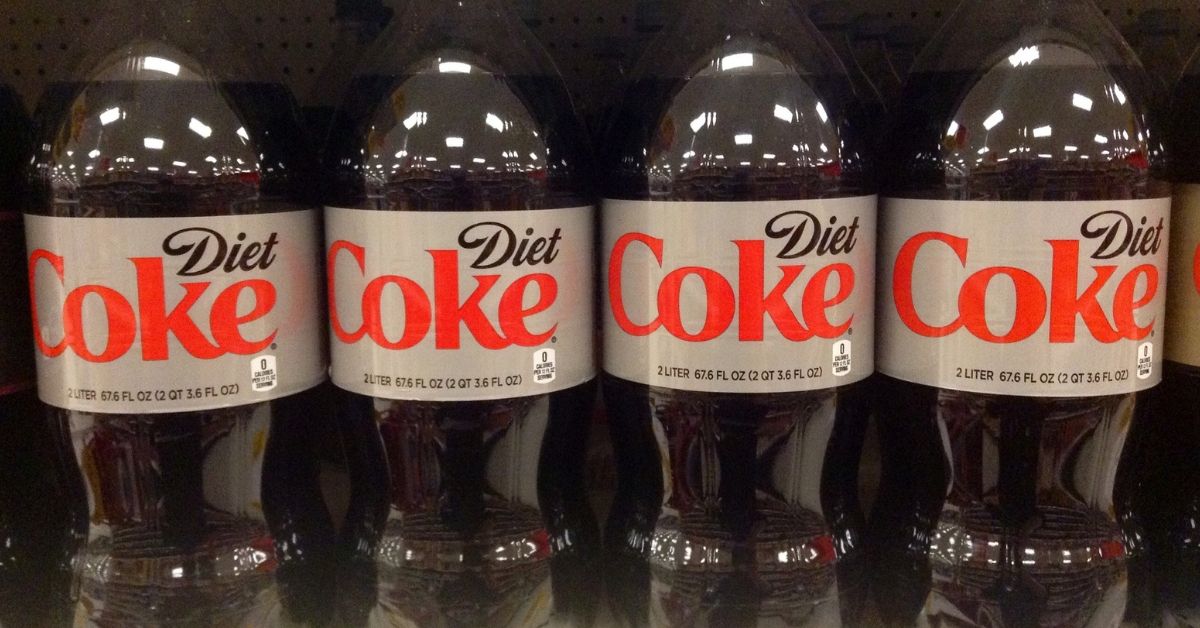When you're thirsty, a significant amount of people will often take a big swig of their favorite soda.
There's an enormous selection of cola to chose from, including regular and diet drinks and everyone has a preference.
While it's not the most healthy beverage to chose from, some have trouble breaking out of the habit - or simply don't care.
Others believe drinking diet soda is more diet-friendly as it's void of sugar and won't contribute to your daily calorie intake.
However, a new study finds that Diet Coke and other similar beverages can pose more risks than we thought, including increasing your chance of developing Type 2 diabetes.
The Study
Dr. Richard Young and his team of researchers from Adelaide Medical School found that the changes to gut bacteria caused by sweeteners can also alter the regulation of glucose levels, increasing your risk of developing Type 2 diabetes - in which the body fails to properly use and store glucose.
"Our findings support the concept that such sweeteners worsen blood sugar control in healthy subjects by disrupting the regulation of glucose uptake and disposal, as well as from changes in the balance of gut bacteria.
This highlights the clinical relevance of dietary low-calorie sweetener patterns to overall blood sugar control."
The research featured 27 non-diabetic participants who provided stool samples before and after the experiment.
Half of the people were given placebos, while the rest consumed three capsules of low-calorie sweeteners - the equivalent to drinking 1.5L of diet soda a day.
After two weeks, researchers found those who took the capsules of low-calorie sweeteners caused an "increase in measures of [their] body's response to glucose," and had a "significant reduction" in good bacteria, known as Eubacterium cylindroides.
"In healthy non-diabetic subjects, two weeks of low-calorie sweetener supplementation was sufficient to disrupt gut bacteria and increase the abundance of those which are normally absent in healthy individuals.
The observed decrease in fermentative bacteria populations and changes in the pathways used by bacteria to harvest energy predicted a deterioration in the body's ability to regulate glucose."
However, this isn't the only discovery scientists have made involving artificial sweeteners.
The Effects on Gut Bacteria
As mentioned above, the intake of diet soda can significantly harm your gut bacteria.
Researchers from universities in Israel and Singapore found the six common artificial sweeteners - aspartame, sucralose, saccharin, neotame, advantame and acesulfame potassium-k - are all toxic to good gut bacteria.
With more research put into bad bacteria, researchers have found links between it and obesity, strokes, and Alzheimer's.
Published in Molecules, the study examined the toxicity of the sweeteners and ten sports supplements containing them through a lab trial.
The Sun reports that the bacteria was "genetically modified to contain fluorescent compounds which glow when they detect toxins."
Once they were exposed to the artificial sweeteners, scientists found it only took one mg/ml of the sugar substitute for the bacteria to become toxic.
"This is further evidence that consumption of artificial sweeteners adversely affects gut microbial activity which can cause a wide range of health issues," the researchers said.
However, soda isn't the only liquid humans can consume artificial sweeteners.
According to Professor Ariel Kushmaro, these chemicals have been discovered to be environmental pollutants through drinking and surface water.
"The results of this study might help in understanding the relative toxicity of artificial sweeteners and the potential of negative effects on the gut microbial community as well as the environment."


